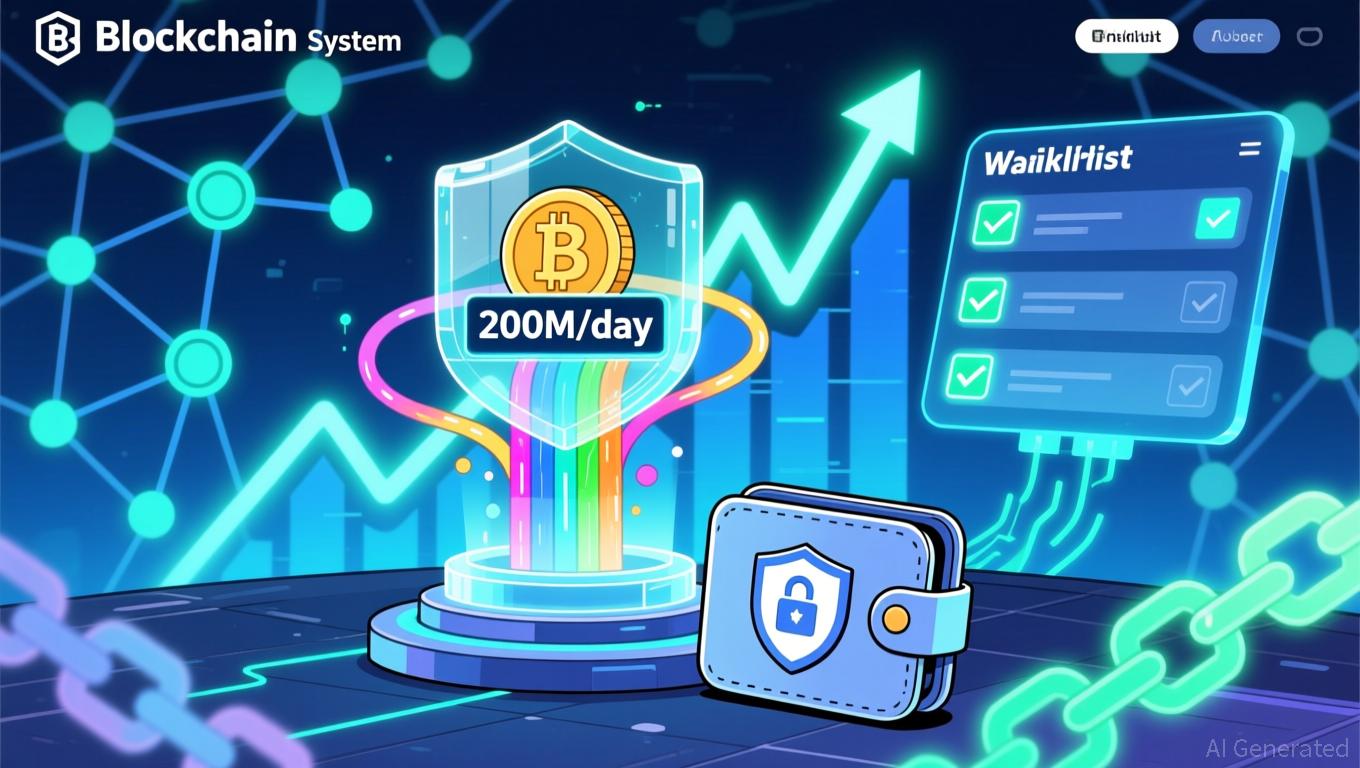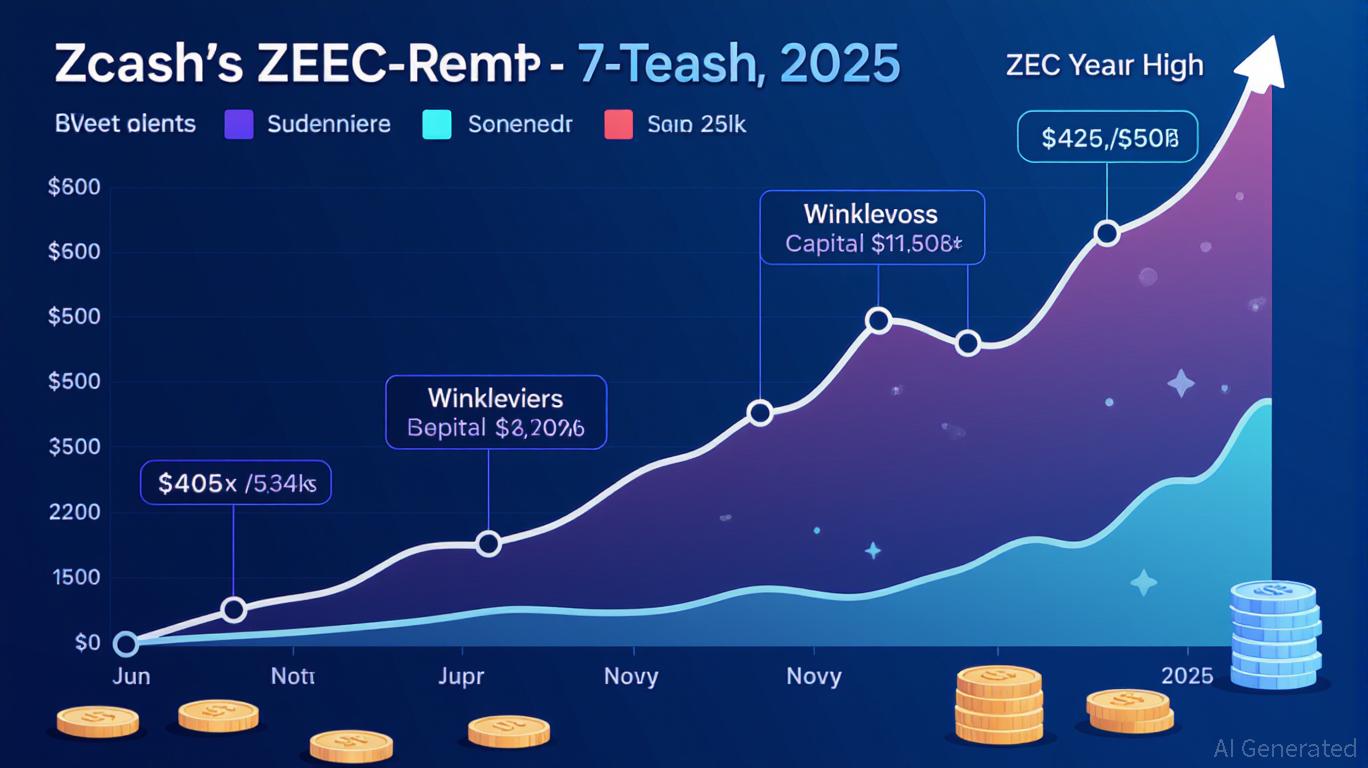South Korea Seeks to Compete with USD Stablecoins Through Blockchain-Based VAT Reimbursements
- NH NongHyup Bank tests VAT refund system using stablecoin tech with Avalanche , Fireblocks, Mastercard , and Worldpay. - Aims to challenge USD stablecoin dominance by streamlining cross-border refunds via blockchain automation. - South Korea’s FSC plans KRW-pegged stablecoin rules by year-end, restricting non-bank issuers. - Domestic stablecoin transactions exceed $41B, as major banks collaborate on won-backed infrastructure. - Pilot could redefine cross-border payments with faster processing and reduced
NH NongHyup Bank, ranking among South Korea’s top five banks, has initiated a proof-of-concept (PoC) project to digitalize value-added tax (VAT) refunds for foreign visitors by utilizing stablecoin technology. This pilot, developed in partnership with
The PoC utilizes Avalanche’s blockchain to

If successful, the pilot could transform cross-border transactions by enabling quicker processing, lowering administrative expenses, and increasing transparency. Choi Woon-jae, executive vice president at NH NongHyup, remarked that the stablecoin approach "shows how blockchain can deliver real improvements to customer service and enhance national competitiveness," with intentions to broaden the system in line with forthcoming regulatory standards, as stated in the
South Korea’s stablecoin initiatives are gaining
This pilot is part of a wider movement among financial institutions to adopt blockchain. NH NongHyup’s project follows similar efforts, including Woori Financial Group’s collaboration with Samsung and its investment in BDACS, a KRW1 stablecoin provider, as reported by
As lawmakers move quickly to establish regulatory frameworks, the government is under pressure to act promptly to remain competitive with countries like the U.S. and Japan. Legislators, including Min Byoung-dug, a proponent of President Lee Jae-myung’s KRW-based stablecoin policy, argue that "the technology is mature, and market demand is clear," stressing the importance of swift implementation, as reported by
NH NongHyup’s project highlights the increasing integration of conventional banking with blockchain technologies, potentially transforming financial services for both local and global users.
Disclaimer: The content of this article solely reflects the author's opinion and does not represent the platform in any capacity. This article is not intended to serve as a reference for making investment decisions.
You may also like
Solana News Update: Negative Tech Trends Meet Optimistic Investments as ZKP's $200 Million Daily Auction Influences the 2025 Crypto Scene
- Solana ETF inflows decline to $6.78M, with price dropping to $144 as key support level amid bearish technical indicators. - Analysts predict $500 by 2025 if Solana sustains growth in dApps and institutional adoption, despite regulatory risks. - ZKP project’s 200M/day auction model and transparency aims to drive 2025 crypto trends, competing with privacy-focused solutions. - REX-Osprey’s SSK ETF offers 7.3% staking yields, contrasting Bitcoin/Ethereum outflows and highlighting novel crypto ETF strategies.

ICP Network Expansion and What It Means for Blockchain Investors
- ICP's dual ecosystem combines blockchain infrastructure with medical TPU manufacturing, targeting digital-industrial convergence. - Caffeine AI and Chain Fusion upgrades drove 131% trading volume growth and 56% price increase in 2025. - Strategic cloud partnerships with Microsoft/Google Cloud enhance enterprise adoption but face SEC regulatory risks. - Network fees surged 100x in Q3 2025 despite 22.4% dApp usage decline, highlighting high-value transaction focus. - Investors balance bullish growth potent

Zcash (ZEC) Price Soars: Blockchain Privacy Innovations and Growing Institutional Interest Usher in a New Chapter for Privacy-Focused Cryptocurrencies
- Zcash (ZEC) surged 472% to $420 in late 2025, driven by institutional adoption and blockchain privacy innovations. - Grayscale and Winklevoss Capital allocated $195.88M to ZEC, leveraging its hybrid privacy-transparency model for AML-compliant private transactions. - Zcash's optional transparency technology saw 30% of supply in shielded pools, with zenZEC token bridging privacy and DeFi liquidity. - 2025 U.S. Clarity/Genius Acts provided regulatory clarity, enabling privacy coins to operate within compli

Balancer Hacker Launders 2,000 ETH Through Tornado Cash
Quick Take Summary is AI generated, newsroom reviewed. The hacker converted most of the stolen assets, including LSTs, into pure ETH before beginning the laundering phase. $2,000 ETH was routed through Tornado Cash in quick succession using $100 ETH deposits to maximize untraceability. This move strongly suggests the attacker is not interested in claiming the offered bounty or returning the remaining funds. Despite the laundering, the primary exploiter wallet still holds over $1,700 ETH, indicating the pro